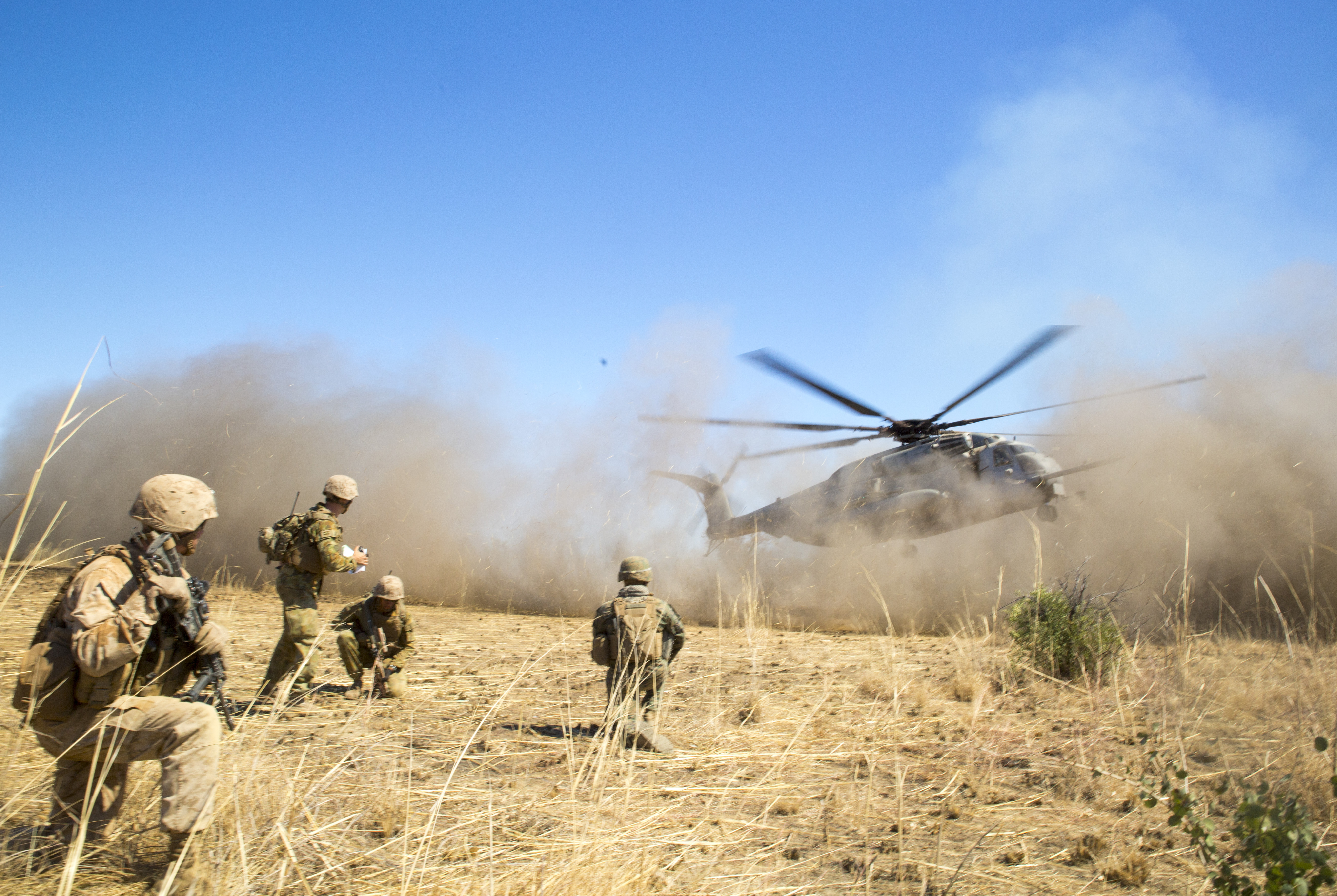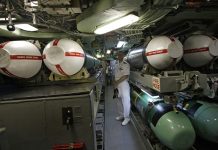China’s ambassador in Australia has lambasted a move to block a Chinese company, Landbridge Group, from running a strategically significant Australian shipping port, calling it “ethically questionable”.
In 2015, the Landbridge group was granted a 99-year lease on the northern port of Darwin, a decision that was widely criticised and led to stricter scrutiny of major infrastructure sales.
Prime Minister Anthony Albanese last month said the port should be “in Australian hands” and vowed to buy back control of the “strategic asset”.
Ambassador Xiao Qian urged Canberra to honour its contract with Landbridge, a sprawling energy and infrastructure firm increasingly targeting markets beyond China.
“Such an enterprise and project deserves encouragement, not punishment,” he said, according to a transcript published on the Chinese embassy’s website over the weekend.
“It is ethically questionable to lease the port when it was unprofitable and then seek to reclaim it once it becomes profitable.”
Albanese had criticised Australia’s former conservative government for “flogging off” the port to “a company with links to the Chinese government”.
Earlier ET Report
Earlier, prior to Australia’s federal elections, the incumbent ruling party and the opposition pledged to bring back the ‘Port of Darwin.’
Valued at US$506 million, the deal later came under scrutiny, with several office bearers and security experts expressing concern about China’s control of a port in Darwin, home to several key military bases, ammunition, fuel storage facilities, and US troops.
Despite the upheaval, the Australian Defense Department stated that the deal had been approved after a study of operational and strategic risks, such as port shutdown, cyberattacks, intellectual property theft, and infrastructure degradation. Australian Security Intelligence Organisation (ASIO) also did not see a menace then.
Ex-PM Scott Morrison hinted in February 2022 that he was considering pulling the plug on the Port of Darwin deal if the Security and Intelligence agencies advised him to. However, Morrison was replaced by Anthony Albanese shortly after, and the port has remained under Chinese control.
Major Issue
The ownership of a key Australian port is concerning, especially since Canberra considers China the biggest threat to its security, as indicated in its Defense Strategic Review.
Darwin lies closest to Australia’s Asian neighbours and has been used as a base for US Marines. At the time of the agreement, then-US president Barack Obama reportedly complained that Washington had not been told of Australia’s plan to do business with Landbridge.
The Northern Territory, in general, is home to critical Australian Defense Force operational bases, intelligence, surveillance, reconnaissance assets, and training facilities. Darwin, in particular, hosts three military bases: Royal Australian Air Force (RAAF) Base Darwin, Larrakeyah Defence Precinct, and Robertson Barracks.
Due to its strategic location, Darwin could play a crucial role in a conflict in the Indo-Pacific between the United States and China. Several military analysts and officials predict that a potential Chinese invasion of Taiwan could lead to a bigger war involving the American military.
The US has a huge air asset presence at Andersen Air Force Base in Guam. The 18th Wing at Kadena Air Base, Okinawa, Japan, is the largest U.S. military installation in the Asia-Pacific and the largest wing in the US Air Force (USAF). It also has access to nine bases in the Philippines, which can be used in a conflict against China since the two allies have a Mutual Defense Treaty (MDT) in place.

However, China could eliminate these frontline bases using long-range ballistic missiles, which has prompted the US to look for more military bases in the Indo-Pacific region. Australia has never explicitly stated that it would join a conflict in Washington’s support. However, if it did, the military bases located in Darwin could be used as a launch pad for American fighter jets and bombers.
The distance between Darwin City and the South China Sea is slightly over 3,500 kilometers and could become a focal point for core Indo-Pacific forces to congregate and train quickly.
This facility is in addition to two more fuel storage tanks built at the base. The US has likely been building these facilities to aid the operation of its warplanes stationed at the Darwin military base amid a burgeoning China threat.
Australia, too, has launched efforts to fortify the region, poured more troops at Darwin, and significantly expanded military facilities in the region.
The presence of Australian and US troops makes China’s control of a key port in the region a risky affair. Australian lawmakers have long expressed alarm that the Beijing-linked corporation might gain access to sensitive military activities, including US military fuel storage.
Previous reports also indicated that the US fuel storage facility will be linked via a fuel pipeline to the Port of Darwin. This has triggered fears that the Chinese company could cause disruptions in the event of a conflict.

Moreover, there are concerns that Landbridge might have ties to the Chinese military. Though there is no evidence to prove this, several Chinese companies globally (such as Huawei) have been accused of conspiring with the Chinese Military to steal military tech and secrets.
The distrust has worsened as Beijing has made concerted efforts to augment its military presence in the Southern Pacific by forging ties with Pacific Island Countries.
Australian lawmakers have pledged to bring the port back under Australian control because of this persisting security threat and the rapidly deteriorating relationship between Canberra and Beijing.
- Contact the author at sakshi.tiwari9555 (at) gmail.com
- With Inputs from AFP
- Follow EurAsian Times on Google News




